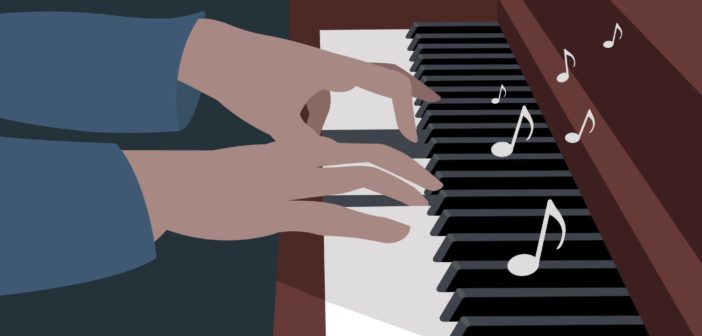When someone experiences life-changing events, they often turn to therapy to help them through it. It could range from anxiety, battling addiction or losing someone who was very close to them.
Something that some people have turned to is the arts. Whether it’s writing, music, painting or drawing, the arts have helped many people cope with a traumatic event. “People already use music every day. It helps their moods and holds onto certain memories,” said Nicole Rivera, a board-certified music therapist.
According to Nielsen, we listen to music for four and a half hours a day, which is why people would turn to music for therapeutic reasons.
“Music is also a powerful tool for expression,” Rivera said. “Certain songs can trigger bad memories, so it really depends on the person if using music is an appropriate outlet or not.”
The Psychology Today article, “Music Therapy for Health and Wellness,” said “music may be used with guided imagery to produce altered states of consciousness.” This could help people to reveal well-hidden emotions and creativity during a therapy session or just during everyday life.
Rivera also mentioned, “it can depend on the person’s relationship to the music.” One song might bring a person happiness while the same song could bring someone else sadness.
Tomas Medina, ’19, recently celebrated his two year anniversary of sobriety. He said he used music a lot in his four-year journey to sobriety. Aside from listening to music, Medina also started to produce music which helped him even more.
“I am frequently listening to music, but it is also one of my main ways of practicing mindfulness,” said Medina. “I put my full attention and mind toward music, taking my mind and thoughts away from the direction of obsessive and overactive thoughts … when I started to produce music it was an even more intensive form of therapy … it is more immersive than just listening to music…”
Some music can be a trigger for people recovering.
“Early in recovery, there were certain songs which would trigger me, leading me to fantasize about my using days,” said Medina.
This doesn’t only apply to people going through recovery. People going through anything traumatic, such as a breakup or losing a loved one could also have this type of experience.
Music can be a powerful tool when used correctly, not only by listening but also creating.

